
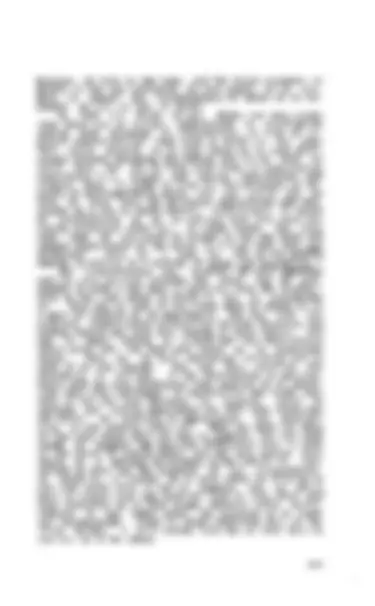
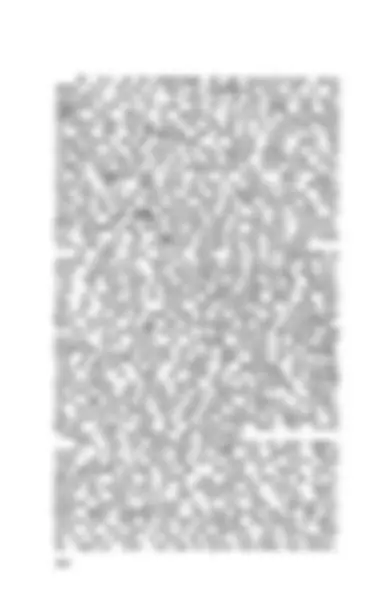
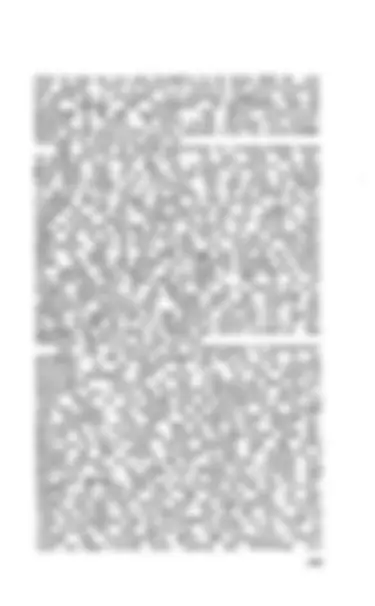
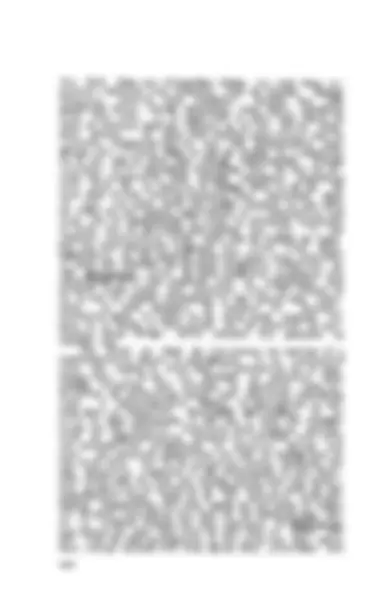
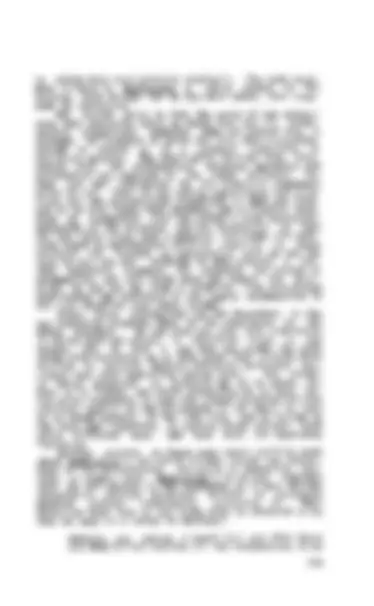
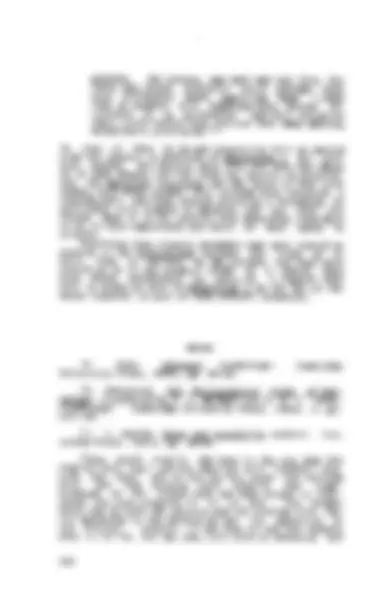


Study with the several resources on Docsity

Earn points by helping other students or get them with a premium plan


Prepare for your exams
Study with the several resources on Docsity

Earn points to download
Earn points by helping other students or get them with a premium plan
Community
Ask the community for help and clear up your study doubts
Discover the best universities in your country according to Docsity users
Free resources
Download our free guides on studying techniques, anxiety management strategies, and thesis advice from Docsity tutors
An analysis of René Descartes' dream argument, a philosophical thought experiment aimed at establishing the reliability of our senses. The author critiques Descartes' argument, arguing that it is self-contradictory and fails to establish the distinction between waking and dreaming experiences. The document also discusses Descartes' intentions in presenting the argument and its implications for his philosophy.
What you will learn
Typology: Schemes and Mind Maps
1 / 11

This page cannot be seen from the preview
Don't miss anything!







University College Dublin
It is a standard criticism of Descartes' dream ar- gument that it must necessarily fail because it is in- consistent with itself: it has to assume the truth of what it sets out to deny. It concludes that there is no difference between dreaming and waking and that our experiences may be false delusions, while the premises, which liken waking to dreaming and assert the illusory character of the latter, presuppose that there is such a difference. As Ryle said in criticism of the argu- ment from illusion:^1 just as it makes no sense to talk of counterfeit coins when there are no genuine ones to contrast them with, so it makes no sense to talk of il- lusory experiences like dreams without waking and veridical ones to contrast them with. I believe that, despite several attempts to argue the contrary, this criticism is correct. However, I also believe that it is a criticism that needs stating with some care. This is because the inconsistency in the dream argument is present at more than one point, and because it appears to be present at a point where in fact it is not. I shall try to show this in Part I of what follows. In Part II I shall make some remarks about Descartes' procedure in Meditation 1 arising from reflections on why he committed the error in question.
I
In the passage where Descartes presents the dream argument he argues as follows. First he notes that he sleeps and that there are occasions when he thinks he is awake and in the presence of real objects but is in fact asleep and dreaming. Then he says that that does not appear to be the case now, for what happens in sleep does not appear "so clear and so distinct" as his present experiences. But while reflecting on this he reminds himself that he has had similar experiences in his dreams and been deceived by them; "dwelling carefully" on this reflection he sees "so manifestly that there are no certain indications by v/hich we may clearly distinguish wakefulness from sleep" that he is "lost in astonishment." His astonishment is such, he says, that it is "almost capable" of persuading him
that he is now dreaming, and from this he goes on to say, "now let us assume that we are asleep and that all these particulars, e.g., that we open our eyes, shake our head, extend our hands, and so on, are but false delusions."^2 Descartes betrays a certain hesitancy in the use of the phrases "almost capable" and "now let us assume." How far does he think the argument justifies the con- clusions that we are asleep and that our experiences are false delusions? This is not as important a question as it may seem, for what matters here is not the degree of force the argument has but what its structure is meant to be. Descartes clearly intends its structure to be such that it establishes at least the possibility of the conclusions, and hence that it allows one to assume them. So he does intend the argu- ment to be taken as establishing this possibility, even if he hesitates about how strong a possibility it is. It is as an argument intended to be taken in this way that is under examination here. Notice, then, first of all, that the fact that we are sometimes deceived into believing we are awake when really asleep, and the fact dreams are illusions, are not used to establish that there are no "certain indications" for distinguishing waking from sleeping; this is something Descartes "sees" when he directs his attention to instances of waking experiences and dreams. If this does not seem sufficiently clear from the text, it can be made clearer if one notes that omitting any reference to the facts in question does not change anything here. Descartes writes: "I remind myself that on many occasions I have in sleep been deceived by similar illusions, and in dwelling care- fully on this reflection I see so manifestly.... " Despite the impression given by Descartes' words, one could replace "I have in sleep been deceived by similar illusions" with "I have in sleep had similar impres- sions" and not affect at all the "seeing" that there are no "certain indications." The second comment I want to make follows from this. The claim that there are no certain indications is a distinct stage of the argument; it is the first point Descartes needs to establish so that, on the basis of it, he can go on to draw the conclusions he wants. In other words, his argument has two stages in it: the first stage (1) ends in the claim that there are no certain indications for distinguishing dreaming and waking, and the second stage (2) draws, as a result of this, the inferences (a) that we are now, or may now be, dreaming, and (b) that what we experience may be false delusions. That (1) is a first and separate stage, necessary to establish what is to follow in (2), is, I think, clear enough, but it is well to have this explicitly set out, so that there is no doubt about it. In some analyses this has not always been made evident.
If (1), as so construed, is not inconsistent, what about (2)? First it must be remembered that (2) is an inference from (1). It uses (1) as its basis and pre- supposes that it is true; for it is only when one has shown that there is nothing certain to distinguish dreaming and waking that one can go on to conclude that we may now be dreaming, and that as a result all our experiences may be illusions. I think this must be stressed, for the nature of the logical order of (2) to (1) determines how one is to set about assessing (2), namely that since (1) is presupposed we must assess (2) on the supposition that (1) is true. Well then, granted this, what does it tell us about (2)? Within (2) there are two parts; (2a) is a separate point from (2b) as is clear from this, that if one assents to (2a) one has not eo ipso assented to (2b), for one needs in addition the further premise that dreams are illusory. This premise may seem too obvious to require stating, but that it is required nevertheless does show that (2a) and (2b) are different steps in the argument. To take (2a) first then. How is it supposed to follow from (1)? Since (1) says that there are no cer- tain indications for distinguishing dreaming and wak- ing, and (2a) says that therefore we may now be dream- ing, it appears we need some such conditional premise as: if there are no certain indications, then we may now be dreaming. Once this conditional is made ex- plicit, it can be seen that it is false; the consequent here stated is not the consequent of this antecedent. If there is nothing certain to distinguish dreaming and waking, then there is nothing certain to show that dreaming is a different sort of experience from waking, and so nothing certain to show that, when we are talk- ing of dreams, we are talking of anything different from what we talk of when we are talking of waking experiences. In other words, there is nothing certain to show that the terms are not synonymous.^4 If, there- fore, one wants to follow the dream argument through, as Descartes does, what one must take seriously is not the possibility that we are now dreaming as opposed to being awake, but the possibility that the terms 'waking' and 'dreaming' are synonyms. This has two immediate consequences of some impor- tance. First it means that it does not matter which term one uses to describe one's experience; since they are synonyms either will do. Second it means that, whichever term is used, one cannot use it as if it stood in opposition to, or excluded, the other; syno- nyms are equivalent, not contrasting, terms. Des- cartes, however, proceeds in a way that contradicts both these consequences. He only gives one of the al- ternatives, that we are now dreaming, and makes no men- tion of the fact that in the context, the other, that we are now awake, is just as good; and, more seriously, he implies that the one he gives excludes the other.
that to say we are now dreaming is to deny that we are now awake. This is where he commits the inconsistency of which he is accused: his argument reguires him to treat 'waking' and 'dreaming' as synonymous, but he proceeds to do the opposite. The above conditional premise is false, in other words, because the conse- quent which Descartes gives clashes with the antecedent instead of following from it. The extent to which Descartes is inconsistent here is made more evident by (2b). To say that our ex- periences are, or may be, illusory requires, as has been said, that it be true both that we are dreaming and that dreams are illusions. But the first of these is false in the way it is taken, for it is taken as ex- cluding being awake, which, in the context, it can no longer do, and the second requires one to commit the same error again. Ordinarily if we were asked to say why we believe dreams to be illusory we would reply that we do so by contrasting them with our waking ex- periences, that we know dreams are illusory because when we wake up we find things are not as we dreamt them. We thus say dreams are illusory because we refer to waking experiences as a class of experiences that are distinct from them and veridical. But it is no longer possible to do this, for, as a result of (]), 'waking experiences' and 'dreams' must be treated as synonymous expressions. Hence one cannot talk of the former in opposition to the latter, nor can one appeal to the former as if it signified a distinct sort of ex- perience by reference to which one could establish the illusory character of the latter. One can illustrate the illegitimacy of Descartes' procedure in the dream argument by noting that it is possible, on the basis of (1), to give an exactly parallel argument that would come to the opposite conclusion. Instead of the proposition that we are dreaming, one takes the logically permissible alterna- tive, that we are awake (for as synonymous these two say the same), and instead of the premise that dreams are illusory, one takes the premise that waking ex- periences are veridical. Now as far as the facts ap- pealed to are concerned, however inconsistent that ap- peal may be here, this latter premise has the same status as the former (indeed it has, if anything, a higher status, for it is by our veridical waking ex- periences that we judge that dreams are illusory, and not vice versa). Hence if it is legitimate to use the former, IT must also be legitimate to use the latter. Taking this together with the premise that we are awake, one has the result that our experiences, includ- ing our dreams, are veridical. Now as one must allow this alternative way of proceeding from (1) to stand if one allows the way Descartes proceeds from (1) to stand, one consequently gets the nonsensical result that our experiences, both waking and dreaming, are
It is Descartes* intention in Meditation X t^ o overthrow the existing foundations of knowledge. I think one must describe his intention like that, and not say, for instance, that it is to show the existing foundations are inadequate, because Descartes does not just want to question the foundations, but actually to remove them from his and his readers' minds, so that he and they will be free to accept the new ones Descartes wishes to put in their place. This is clear enough from the way he speaks about Meditation i within that Meditation and elsewhere,^5 and also from his well-known advice to his readers to spend some months in reading it. As Kenny has rightly remarked, the doubt is "a meditative technique, a form of thought therapy,"^6 and as Gilson observes, Meditation I is "not a theory to understand, but an exercise- Eo practice,"^7 thereby cor- rectly drawing attention to the fact that it has as much in common with the Spiritual Exercises of St. Ignatius Loyola, used by Descartes * Jesuit teachers, as with treatises written by philosophers. The purpose of the doubt is to rid the mind of false beliefs and their inadequate foundations, so that it will be free to ac- cept new, certain foundations and true beliefs that are true because founded on them. Given that this is so, and that it is the senses that were the foundations of the philosophy of the day (as Descartes notes in the Discourse^6 ), what Descartes needs is arguments that will remove that acceptance of the senses. The dream argument does serve this func- tion, if one takes it as sound, as many, including Descartes, seem to have done. But it is not sound, or rather only part of it is sound (at least to the extent it is not inconsistent), and the question arises as to whether it would serve the same function if this part alone, namely part (1), were presented. The answer must be no, for then the result would be that 'waking* and 'dreaming' were synonymous terms, not that waking experiences might be illusory. Such a conclusion will not remove from the mind its confidence in the senses; what it will do is put the mind in the same disposition towards both dreaming and waking, and make it ready to accept or reject them when there is reason to do one or the other. The dream argument itself gives no such reason. As this result is not what Descartes wants for his purpose, it helps to explain why he should not have been interested in an argument that only led to this result, and why he should have wanted to go further, though in doing so he fell unavoidably into incon- sistency. There is, however, a deeper reason, related to what he does in the immediately succeeding paragraphs, why Descartes needs to have the full dream argument with its conclusion that our experiences are illusory. He goes on to suggest that, supposing all our waking ex- periences are "false delusions," it still does not fol-
low that they are altogether false, for what they re- present contains true elements, just as dreams, though illusory, contain true elements: dreams are like paintings which, though imaginary, take their elements from real life. It is important to note that there is here an exactly similar fallacy as in the dream argu- ment proper. To show that waking experiences may be illusory, Descartes had to use the proposition that dreams are illusory when he was no longer in a position to do so; and to show that waking experiences, though illusory, still represent something real, he has to as- sume the proposition that dreams represent something real when he is equally no longer able to do so. We know that dreams contain elements that represent what is real (as eyes, head and hands) because we are able to refer to our waking experiences as a contrasting and true set of experiences in order to persuade ourselves of this, but as dreaming and waking are not, in the context, contrasting terms, this can no longer be done. But why did Descartes compound his error like this, especially as the passage does not seem very relevant? It does not advance the primary sceptical intention of the Meditation since no more sceptical arguments are introduced until the argument from an omnipotent God several lines later, and, moreover, since the effect of it is not to remove confidence in the senses but actu- ally, in some measure, to restore it. However, Descartes does, it seems to me, have good reasons for what he is doing at this point, for he achieves in par- ticular three things, which advance his purpose in another way. The first is that he introduces the notion of a representative theory of perception. It is insinuated into the reader's mind that if perception is of any- thing real, it is so, not because we perceive real things directly, but because we perceive them in- directly, by perceiving images that represent something real. A representative theory of perception is not only part of Descartes' developed philosophy; it is vital to that philosophy in the way it lays the founda- tions for his physics. Descartes must suppose percep- tion is representative because he contends that only the mathematical properties in material things are real, the sensible properties are not in things but in the mind only. But if we perceived things directly (as was generally supposed in the philosophy of his day), this could not be true for things would have the sensi- ble properties we perceive in them just as much as the mathematical ones. That we do not perceive external things immediately but only ideas in the mind is taken for granted throughout the rest of the Meditations, but it is nowhere argued for (for instance^ in Meditation III Descartes says that what he had come to doubt was not that lie had perceptions in his mind but that there were things outside him from which they proceeded and
physics. But please, one must not say this; for those who favour Aristotle would perhaps make more difficulty about approving them. I hope that my readers will imperceptibly become ac- customed to my principles, and will recognize their truth before they realize that they destroy Aristotle's principles.^10
In view of this it is not surprising that he should urge his readers to meditate on Meditation I for sev- eral months, for whoever does this and lets the ideas in it sink deeply into his mind (as Jesuits by practic- ing the Spiritual Exercises let the ideas in that sink deeply into their minds), will already have advanced a considerable distance towards becoming a Cartesian, in particular with respect to physics, and one roust not forget that it is his physics that Descartes considers to be of most importance and which he most wants to promote. Descartes then clearly intended that more should be present in the Meditations, between the lines as it were, than is obvious on the surface, and that more should go on in his readers' minds as a result than they would immediately be aware of. I suggest that what is going on here in Meditation I in the use of the dream argument is part of this overall intention.
'G. Ryle, Dilemmas (Cambridge: Cambridge University Press, 1960), pp. 94-95.
(^2) R. Descartes, The Philosophical Works of Des-
cartes, translated by E. S. Haldane and G. R. T. Ross, (Cambridge: Cambridge University Press, 1911), I, pp. 145-146.
(^3) J. L. Austin, Sense and Sensibilia (Oxford: Cla- rendon Press, 1962), pp. 48-49.
(^4) They would signify the same in the way that the English term 'tap' and the American term 'fawcett' sig- nify the same, not in the way the terms 'the morning star' and 'the evening star' signify the same. Although in the latter case the same object is indi- cated, the same property of it is not. The planet Venus may be both the morning and the evening star, but its appearing in the morning is not its appearing in the evening. However, in the case of tap and fawcett this is not so, and the same will hold of dreaming and
waking on the condition that there is no genuine diff- erence between them.
(^5) One may refer here in particular to the analogy
with building given in reply to the seventh objections, Descartes, op. cit., II. 325-326, which is also used in the Discourse, Ibid., I, p. 89.
(^6) A. Kenny, Descartes (New York: Random House, 1968), p. 24.
(^7) E. Gilson, Etudes sur le role de la pensee mediev-
ale dans la formation 3u systeme Cartesien (Paris: Vrin, 195TT» P- 186. Quoted by E. M. Curley, Descartes Against the Sceptics (Oxford: Basil Blackwell, 1978), p. 43.
(^8) Descartes, op. cit., I, p. 104.
(^9) Ibid., I, p. 158.
i o Idem, Philosophical Letters, A. Kenny (ed.) (Ox- ford: Clarendon Press, T970), p. 94. Quoted by Curley, who investigates this assertion of Descartes' in detail op. cit., pp. 207-234.